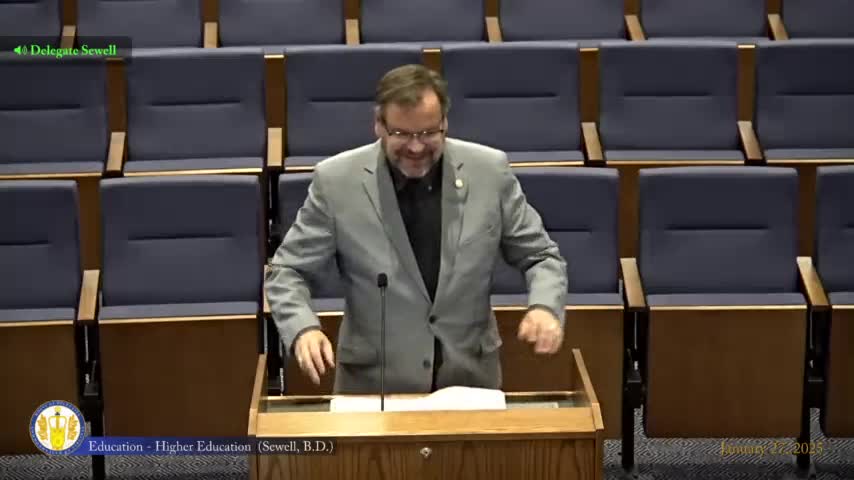House panel votes 7-2 to advance bill requiring livestreams of public university board meetings
Get AI-powered insights, summaries, and transcripts
Subscribe
Summary
The Higher Education Subcommittee advanced House Bill 2452 after debate and amendments to require baccalaureate public institutions to livestream, record and archive board and committee meetings, with a stakeholder work group to set uniform standards.
House Bill 2452, which would require baccalaureate public institutions in Virginia to livestream, record and archive meetings of their boards of visitors and subcommittees, was reported out of the House Higher Education Subcommittee on a 7-2 vote.
The bill’s patron, Delegate Delia Hodges, told the subcommittee the measure “seeks to enhance transparency and public access to the decision making processes of Virginia’s public universities by requiring baccalaureate public institutions of higher ed to livestream, record, and archive all meetings of their boards of visitors including committees and subcommittees.” Hodges said the bill includes a stakeholder process to develop uniform standards and a reenactment clause to test feasibility.
Supporters at the hearing described the bill as a long‑running effort. Megan Rhine of the Virginia Coalition for Open Government said the measure follows recommendations from a 2021 stakeholder group and argued that boards of public universities have “bigger constituencies than any public body in the state.” Rhine read a suggested standard into the record: “Real time electronic access shall mean the members of the public can witness the meeting from beginning until adjournment of any part of the meeting that is not closed.”
Representatives of several universities said the added enactment language — which directs collaboration among the State Council of Higher Education for Virginia (CHEV), the FOIA Council, the Library of Virginia, public institutions and technology experts — addressed operational and cost concerns. Chris White, representing the University of Mary Washington, said the enactment clauses “mirror a process that we used back in 2021” and called that process productive. Elizabeth Hooper of Virginia Tech also thanked the patron for language sending the requirement to a work group.
Members discussed the estimated fiscal range for institutions. Delegate Cohen questioned a wide per‑institution cost range cited in the materials. Hodges and witnesses said the stakeholder work group and the reenactment clause were intended to mitigate fiscal concerns before the General Assembly considered final, enforceable requirements.
With amendments and the reenactment clause in place, the subcommittee voted 7–2 to report the bill to the next stage of consideration.
